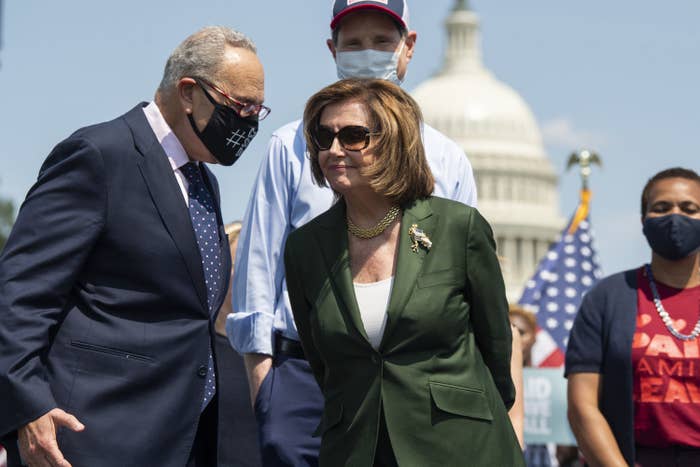
WASHINGTON — Democrats made their pitch for America’s first nationwide parental and medical leave program Thursday, as Congress began work on what could be the signature bill of the Biden presidency.
Five House committees returned from summer break to start putting together the Democrats’ major social program bill, dubbed the Build Back Better Act, that could reach up to $3.5 trillion in new policies. Republicans are mounting a campaign to do whatever they can to kill it.
The powerful Ways and Means Committee began its Thursday session with Democrats highlighting their promise of a universal parental and medical leave program that mandates paid time off to workers who fall ill or take time to raise newborn children.
The US is the only developed nation that does not mandate any parental leave for its citizens.
During the election, Biden promised 12 weeks of paid parental leave to new parents of up to $4,000 per month, subsidized by the federal government. Lowest wage workers could see up to 80% of their salary replaced, while others would receive up to 70% of their salary. It’s too early to say whether the bill before Congress will exactly match this proposal.
Democrats also highlighted their plans to make permanent a $300-per-month tax credit to parents of young children, expand Medicaid to include hearing, vision, and dental care as well as covering more people, and invest in green energy.
The political fight will be about the micro versus the macro. While Democrats focused on the specifics of the bill, Republicans homed in on the $3.5 trillion price tag, arguing that the country cannot afford it.
Republicans spent much of the day making grave warnings about the impacts of the bill. Rep. Kevin Brady said it would “usher in a new era of government dependency with the greatest expansion of the welfare state in our lifetimes.” Rep. Devin Nunes called it “a $3.5 trillion spending orgy.” Rep. Lloyd Smucker said it would kill the American dream.
Democratic Rep. Steven Horsford accused Republicans of trying to distract people from the contents of the bill that are overwhelmingly popular. “My colleagues on the other side want to talk about everything, but they won’t talk about what’s actually in this universal paid family and medical leave. Why? Because it helps you,” he said.
The real fight is not between Democrats and Republicans but within the Democratic Party. They plan to use a process called budget reconciliation to pass the bill this fall with their narrow majorities in the House and Senate. They won’t need a single Republican vote, and are unlikely to get one. But they will need every single Democratic senator on board and almost every member of their House caucus. That margin for error means moderate Democrats could shrink ambitions for the bill.
Those tensions quickly came to light Thursday as Democratic Rep. Stephanie Murphy announced she would vote against passing the bill through the Ways and Means Committee, despite supporting many of its measures, because the plan is being put together piecemeal. Murphy said it is unfair to ask members to vote on parts of the bill when they don’t know what the final package will look like.
“As we begin the multiday markup of this historic legislation, I don’t know how much we’re spending, how much we’re raising, how we’re spending some of the money, and how we’re raising any of the money,” said Murphy.
Speaker Nancy Pelosi has set a deadline to pass the Build Back Better Act by the end of September. But West Virginia Sen. Joe Manchin, whose support is essential, has balked at the size of the package and called for hitting “pause” on the bill. So far, House committees are disregarding that call and continuing to put together the pieces.
